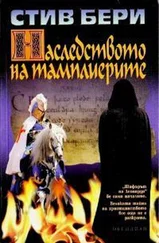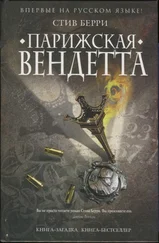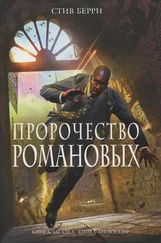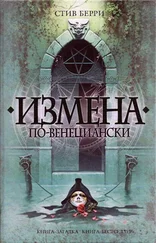He stared down at the photo.
Albert Herzog was smiling at his young daughter. He was a tall, thin man, the face weather beaten, the hair sparse and black. With a diffident and unassuming gaze, his right arm wrapped around the little girl’s shoulder, he stared at the camera with the look of a loving father. The tiniest smile creased his thin lips. How many German industrialists had succumbed to the lure of free labor and ready markets? Hitler offered both slaves to run their factories and a war machine to consume their goods. The profits had been too lucrative and too easy to resist. Car companies, steel mills, armament shops, banks, building contractors, clothiers, research laboratories, and countless other concerns simply could not refuse what the Third Reich offered. And none, to his knowledge, willingly returned a mark in compensation after the war. Whether Albert Herzog was different, he’d never know. The only important point, at the moment, was that his daughter believed him a victim.
Marie Eisenhuth’s face seemed set for combat, and he saw the will of a woman who fought to the end for what she believed.
That he admired.
“I want to know if Martin Bormann survived the war,” Eisenhuth said. “It galls me to think that he may have lived to an old age. It further galls me that his and others’ lifestyles may have been financed with assets stolen from plundered countries and countless victims. I hope none of that is the case. But I want to know, even if there is just a shred of truth here.”
“Do you seriously think that Eva Braun was pregnant, married Hitler in the bunker, then left with Martin Bormann to have a child?” Cotton asked.
“I do not know, Herr Malone. The information we have is quite sketchy on that point. But I do believe she and Bormann may have escaped, as the documents indicate. We simply have no idea what happened in the bunker. All we know is what we have been told happened.”
“Even if Bormann survived, he’d be over a hundred years old,” Cotton said. “Long dead.”
“But his son may still live.” Eisenhuth drew a breath. “In the information you have read, Bormann’s son was born in 1952. So was Theodor Pohl. Did you know that Martin Bormann’s father was named Theodor? And the woman who died yesterday. Her last word to Danny was Kaiser. Did you know that many in Pohl’s inner circle call him the same thing? Kaiser. Emperor. Some sort of term of respect, I am told. Also, as I am sure Danny has told you, is it not odd that much of this same information surfaced a few years ago in Chile, with another American agent? Even the same source. Gerhard Schüb.”
That was curious. And puzzling.
“I assume Pohl’s past has been fully checked out?” he asked.
“It was the first thing we did. Records show that he was born in Hesse to long-standing citizens but, as you have been told, those records may not be accurate. There are questions. Our wartime and postwar documents are replete with discrepancies. Missing data, incomplete files, forgeries, little in the way of verification. As an adult, Pohl has led a fairly public life. Went to university in Heidelberg, and into business thereafter. All self-made ventures that became quite profitable.”
“I assume he has money?”
She nodded. “Quite a bit. He bought several German publishing houses at a time when the industry slumped. He held on to them, consolidated, and created one of the largest publishers in the country. He’s also heavily invested in banking and serves on several corporate directorships. I can supply you with a full dossier.”
“Does he pay his taxes?” Cassiopeia asked.
He knew that was the Achilles’ heel of most successful people.
“He does, with no issues our auditors could determine,” the chancellor said. “Everything is in order. His only excess seems to be his politics. But he is a populist, and they tend to lean toward the extreme. I am sure you can see how, at a minimum, all of this has piqued my curiosity.”
He had to admit, he was intrigued, too.
Not your ordinary run-of-the-mill mystery.
“The past three-quarters of a century, since the war, has been tough on Germany,” the chancellor said. “First the Nazis, then the communists separated and brutalized us. Currently, both legacies seem to have merged in the anger of new-right extremists. When we were divided, West Germany openly discouraged fanaticism. East Germany, though, took a different tack. The communists merely suppressed everything, thinking hate would no longer exist simply because they would not allow it to be there. After reunification, when that suppression ceased, hate groups from the old East Germany blossomed. Opportunists like Theodor Pohl now exploit that collective frustration.”
He sensed her sincerity. This woman of obvious privilege, owner of a secluded estate beside an Alpine lake, seemed in tune with what ailed Germany.
“In 1920 the National Socialist Party was thought to be a joke,” Eisenhuth said. “By 1933 it ruled Germany. If history has taught us nothing else, we have learned that we must defend ourselves against extremism … from the beginning.”
The logic was sound, and he could think of no good rebuttal.
“Time has an annoying way of removing tarnish,” Eisenhuth said. “If any of the information I have been provided proves true, exposing Pohl could have a chilling effect on the new-right movement rising not only here in Germany, but throughout the European Union. Or at least we can hope.”
He felt compelled to say, “Or the opposite could happen and he becomes a rallying point.”
“It is a danger. But I do not want my legacy to be that I led this country into ruin and disgrace. That I paved the way for a man like Theodor Pohl.”
“We’ve already told President Daniels that we will do what we can,” he said. “He’s a tough person to tell no. As are you.”
Eisenhuth smiled. “You are a charmer.” She pointed. “I was warned. But I am delighted to have your assistance. When can you leave for South America?”
“Immediately,” Cassiopeia said.
Marie watched from the library window as the boat carrying Cassiopeia Vitt and Cotton Malone eased from the dock and disappeared across the lake. Part of her security detail watched them leave, too.
She could not decide if she was apprehensive or relieved that soon she might have an answer to the question of her opponent’s lineage. Was she doing the right thing? Perhaps it would be better to simply let the matter go. What had Hanna Cress told Danny Daniels? “There are people and things, from the past, that still have meaning today. Tell Oma to be diligent to victory.”
What a strange warning.
She glanced again at the table and the photographs of her father and mother. What would they think of her? Both had been dead a long time. Neither lived to see her rise in politics, and never would they have conceived that one day she would be chancellor of Germany. A poem came to mind. One her father had quoted often. The words were glued to her conscience.
The towers stand in flames
The church is overturned
The town hall lies in ruins
The stalwarts are hacked to bits
The maidens are deflowered
And everywhere we look
Fire, plague and death
Press the heart and soul.
The writer could easily have been talking about Germany after World War I or II. Or East Germany after the communists. But instead Andreas Gryphius penned his words in 1648, at the end of the Thirty Years’ War.
She knew her history.
Over a third of the population had been slaughtered, the nation devastated, towns razed, the collective conscience marred with violence and hatred. Such madness seemed the course of Germany. To some, the quest for empire, the desire to expand, remained perpetually overpowering. And just when victory appeared at hand, greed and arrogance had always caused a downfall. Holy Roman emperors, Prussian kings, Bismarck, and Hitler all made the same mistakes. None learned from the others, though each preached an appreciation for those who’d come before them. Germany was once again a united nation with another chance to exist as a body politic.
Читать дальше












